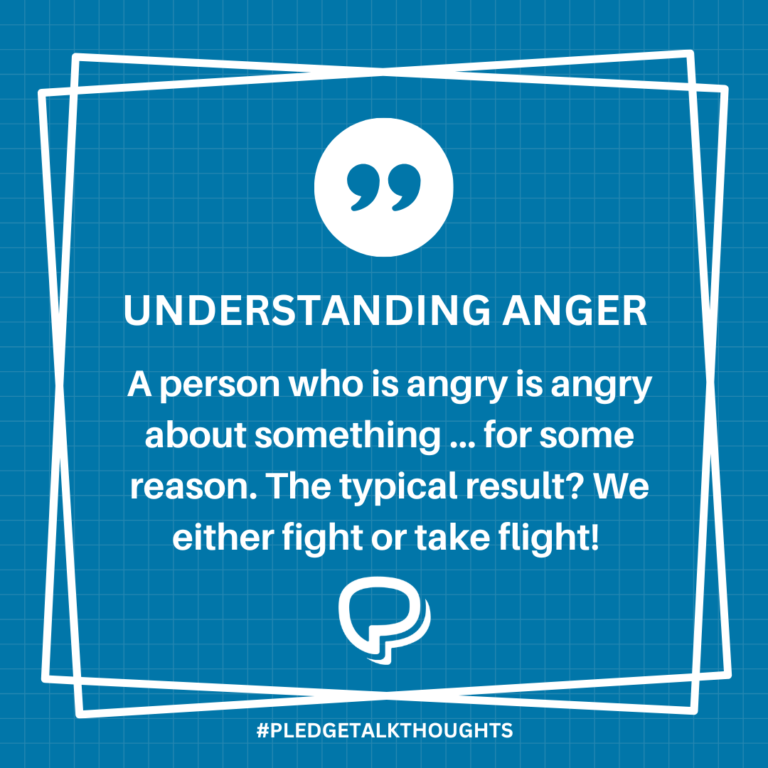How to Show Understanding to an Angry Person
A person who is angry is angry about something … for some reason. In their anger, they communicate directly or indirectly what they are angry about. Our task is first, to listen well enough to “get it” and second, to make it clear in some way what we “get” so they know that we know why they are angry.
Here’s the challenge: when someone is angry at us, we experience all kinds of reactions that are physical, mental, emotional, and even physical in nature. Muscles throughout our body tighten up. Memories or pictures of past events immediately flood our minds of when that person or another person has been angry at us in the past. Anxiety, fear, and even terror might overwhelm us.
The typical result? We either fight or take flight! (Freezing up is a type of fleeing.)
With PLEDGEtalk, I believe we can do better. It is still not easy, but doable and knowable as far as what is needed most by the angry person. They need to KNOW we have heard them.
The task is to Echo back what was said as fully as possible.
Take one (or three!) deep breaths (literally!) and Echo back what we heard. Don’t make it any more difficult than that. This is THE NUMBER ONE action that needs to be taken in the interaction. Echo back, then ask if we heard correctly – and get quiet. Wait for them to respond. Wait for them to either say yes we heard correctly or for them to continue with more explanation of why they are mad. If they do the latter – listen again until you “get” what else they are saying, then Echo back again, and ask once more if you heard correctly. You may need to do this several times until they calm down and have said all they feel they need to say.
But what if our reactions seem so strong that we can’t stay in the conversation to Echo back well? What then?
It’s why Pausing is so important to the PLEDGEtalk process. If I am overwhelmed physically, mentally, and emotionally, there is nothing better for me (and for the relationship) than to Pause. I must get quiet and/or get away where I feel safe and the other person will be safe from any harm I might otherwise incur with my words.
There is so much more I could say about this like:
- we may need to repeatedly pause!
- the length of the pause could be from 30 seconds to thirty hours, or even thirty days! I have paused with at least one person that I felt unsafe around even much longer than that!
- we ultimately take the pause step – as in all steps of PLEDGEtalk – so that we keep from causing any further harm in the relationship and get back to love.
BUT…
…when we are able, we come back to the table and Echo back what we heard. In doing so, the person who is angry will experience being heard and understood. It is a good and solid step towards a helpful and healthy connection.
What is challenging for you when it comes to the step of Echo in the PLEDGEtalk process? Leave a reply below – even if just a word or sentence.
Mark Oelze, Author/Creator of PLEDGEtalk




Leave a Reply
Want to join the discussion?Feel free to contribute!